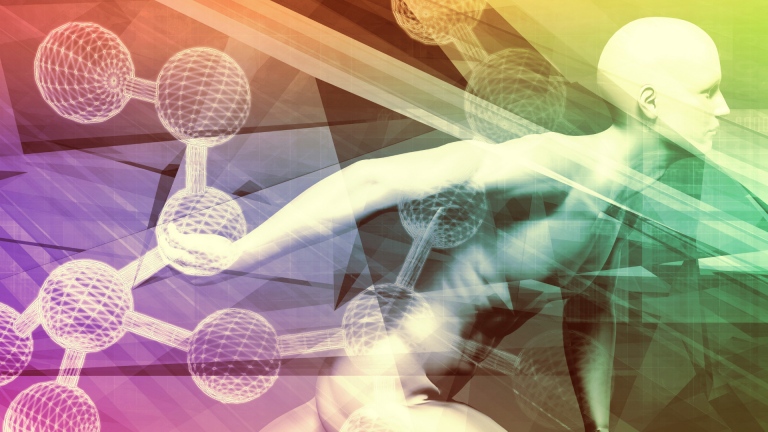How Testosterone Affects Fat Loss:
Real Science of Low-T Testosterone Affects Fat Loss; their testosterone levels decline as men age. This increase in SHBG (sex-hormone binding globulin), which binds to testosterone and thus reduces the amount of free testosterone in the body. Low testosterone levels, obesity, and many other health problems, including fatigue, memory problems, and decreased muscle and bone mass.
So what is the impact of testosterone on the body, and how does Testosterone Affect Fat Loss? Testosterone and energy – low levels of testosterone can cause low energy levels. Regaining natural testosterone levels can increase strength and lead to weight loss. Studies have found that testosterone supplementation reduces total body fat percentages. Obesity is related to low testosterone levels in men. Just as testosterone therapy is associated with decreased obesity, losing weight is associated with increased testosterone levels.
An article in 2014 in the Journal of Current Opinion in Endocrinology, Diabetes, and Obesity looked at the existing data regarding testosterone therapy in overweight and obese men with testosterone deficiency (hypogonadism).
- Many weight loss supplements have dangerous side effects or are ineffective.
- Looked at weight loss, BMI, waist circumference, and body composition
- Evaluated long-term testosterone therapy
- About 40% of obese nondiabetic men and 50% of overweight, diabetic men over 45 have low free testosterone levels.
- Many studies have found that testosterone therapy in overweight men helps increased lean body mass, weight loss, decreased BMI, and reduced waist circumference.
- Weight loss is significant and sustained with long-term testosterone therapy.
- Testosterone plays a part in protein, fat, and carbohydrate metabolism.
- Testosterone is involved in mitochondrial function and, thus, energy production and utilization.
- This interference with energy production is likely why those with low testosterone levels experience a lack of energy.
- Testosterone therapy has been found to increase lipid oxidation and normalize glucose use in the body. It was found to increase strength and motivation.
Weight gain is associated with an 88% increase in body fat, a 12% increase in lean body mass (LBM), and weight loss with a 72% decrease in body fat and a 28% decrease in LBM.
- With testosterone therapy, LBM has been shown to increase.
- Increased LBM means increased energy expenditure at rest
- Testosterone therapy with improved cardiometabolic function
Testosterone deficiency decrease in energy metabolism from fat and increases in energy metabolism from glucose.
- Testosterone therapy has been shown to increase lipid metabolism
Safety? Safety is the primary concern with testosterone replacement therapy. Possible risks discussed in the literature include:
- Increased risk of prostate and breast cancer
- Liver toxicity and tumors
- Sleep apnea exacerbation
- Testicular infertility and atrophy
Talking with your doctor before starting testosterone injections therapy is necessary.
Summary: If you are a male struggling to lose weight, testosterone therapy is a promising treatment to help with not only weight loss but for body composition, energy levels, and overall health.
**NOTE** The content in this blog is subject to interpretation and is the opinion of the content writer. We do not claim it to be fact. We encourage you to consult a medical doctor before taking any prescribed medications or supplements.
Conclusion
Supporting Hormones health is essential for overall well-being and vitality. By incorporating regular exercise, proper nutrition, adequate sleep, stress management techniques, and IV therapy, you can help maintain optimal testosterone levels and lead a healthy, balanced life. Always consult a healthcare professional before making significant changes to your lifestyle or starting any new treatments to ensure they suit your needs.
At AAI Rejuvenation Clinic, we advise anyone to think seriously about beginning Hormone treatment if there is no medical need for it. However, we will take every precaution to ensure that you read your program’s positive benefits by providing the latest at-home hormonal mouth-swab testing to ensure we are continually monitoring your progress and aware of any adverse side effects. Fill out the Medical History Form, or if you need more information, call us at (866) 224-5698 or (866) AAI-Low-T.
Low Hormone Symptoms
- Motivation
- Sex Drive and Desire
- Depression
- Fatigue
- Erectile Dysfunction
- Cholesterol
- Low Energy
- Memory Loss
- Osteoporosis
- Wounds & Illness
- Muscle Mass
- Sleep Disturbances
- Thyroid Dysfunction
- Weight Gain
]]>



